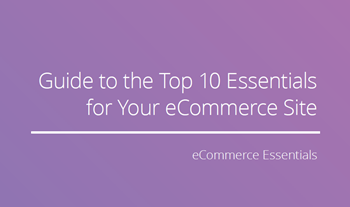Many B2B professionals are familiar with looking at ecommerce strategies as a way of improving their overall marketing. However, you rarely hear about it being utilized the other way around. B2B tactics can be used as effectively on B2C projects with a bit of creativity, and they can work wonders.
The logic behind this is simple: there aren’t that many fundamental differences between B2B and B2C strategies, it’s mostly a matter of targeting different audiences. Sure, you wouldn’t use the same tactics to get someone to sign up for a corporate accountancy service as you would trying to sell them a games console, but as long as you’re always thinking about how to engage your target market, you’ll be on the right track.
With that in mind, there are some B2B marketing mindsets that transfer over surprisingly well to the world of ecommerce. Here are three proven strategies that can improve your B2C sales.
1. Content marketing is still king
B2B professionals are still very much sticking to content marketing as their strategy of choice. The Content Marketing Institute found that 67% of B2B organizations are either “extremely” or “very” committed to content marketing, while 50% expect their content marketing budgets to increase this year.
The costs for lead generation through content marketing are 38% of the equivalent costs of paid search. However, because it can have limited short-term effects, it tends to be neglected by ecommerce professionals. This is a mistake, as building up your brand through content can be extremely valuable.
Of course, you need to make sure you’re covering the correct topics. Buzzsumo has found that informational content is usually the most successful in the long-term. While you might be tempted to craft sales-heavy content, it will be more effective for you to build your brand the way B2B businesses do.
2. Engage customers through email
Email marketing is a very well-known B2B strategy, but it tends to be neglected in the ecommerce world. However, with a return on investment of approximately $44 for every $1 spent, it’s not something you should ignore. In fact, it can be utilized extremely effectively to build an interested customer base.
Personalization has long been something customers have asked for, but it’s not something many brands are fulfilling. Many rely on simple tactics like addressing customers by name, but that only appeals to around 8% of people. However, email marketing can provide a solution.
Tactics like personalized recommendations can go a long way towards driving ecommerce sales. Deloitte found that 36% of customers would be interested in this, and it’s a tactic that can be achieved through email marketing. Sending out regular recommendation newsletters, for example, could encourage past customers to return for more purchases.
3. Focus on value
When you think about selling your products, you might assume the main factor customers are looking for is price. However, if you look at B2B companies, you’ll generally see that the more successful ones focus instead on value, providing their clients with extra services that make them worth the cost.
When it comes to ecommerce, bear in mind that many of your customers will be used to brand titans like Amazon or Apple. They will expect similar services, and doing so could increase your revenue by as much as 10%. This might mean offering free delivery, 24/7 customer service or other options the big brands utilize.
It’s also a good idea to keep an eye out for opportunities to go above and beyond whenever you interact with customers. This is a B2B staple; Core dna’s Sam Saltis says:
This is advice you can use just as well in an ecommerce setting.
Access the latest business knowledge in Marketing
Get Access


![13 Psychological Pricing Tricks You Should Try [Infographic]](/getmedia/1577a674-5aec-40dc-b038-83209d78567b/psychological-pricing-tricks-you-should-try.jpg?maxsidesize=350&resizemode=force)


Comments
Join the conversation...